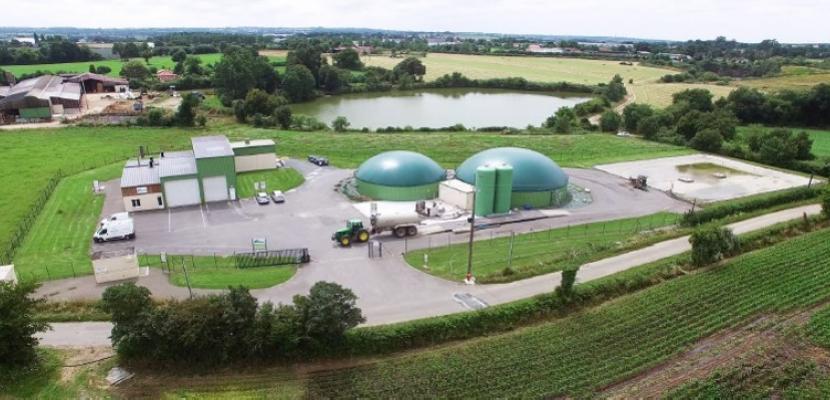
Biomethane from anaerobic digestion of agricultural wastes

About this good practice
AgriBioMéthane (ABM) is a company created and supported by 4 farms from Vendée region: it has a methanation unit operating since 2014 which produces biogas from livestock manure and agri-food industry waste. Purified thanks to a technology called "Pressure Swing Adsorption", it turns to biomethane.
The driver of the project was a joint effort by the farmers, to improve the nutrient management in the region. As the investment for a common slurry treatment is the same as for one farm, investors decided to find a shared solution.
ABM has been working for 3 years and was 1st in the region producing biomethane and injecting this biomethane into the grid. Farmers keep organisational and financial majority of this project of biogas plant. The additional substrate is delivered from surrounding industries, and from slaughterhouses that are owned by agricultural cooperatives already working with these farmers. Depending on the nature of the waste, ABM pays for the additional substrate, or get paid for its treatment.
Feedstock amount is 21.535 t/year dairy cow and pig slurry, dairy cow manure, waste from grease of decantation. Manure and slurry is delivered by the investors. ABM benefit is 34,000€/year for overall treatment. Substrates from waste producers cost 25,000€/year to ABM.
Residue of methanation, the digestate is spread on the land of the 4 farms to replace chemical fertilizers (70 tons saved/year) and is odourless.
Resources needed
Investment costs 3.4M€
Investors: 10 farmers, Terrena&Lyonaise des eaux, French investment fund for green energy
Investment support
• National Waste & Energy Agency 760,000€
• 60,000€ district council
• 195,000€ European Regional Development Funds
• 70,000€ subsidies by water supply agency
Evidence of success
447,209 Nm3 produced during first year of functioning
Biomethane is consumed locally by a big bakery but certificates of origin (to identify and record biogas) are sold to local authorities. A filling station for gas vehicles (busses and lorries) using compressed biomethane, is foreseen.
The project has enhanced local integration allowed by upstream communication. Foreseen BioNGV (natural gas vehicle) service station will allow integration of economic actors: industrial and local transporters
Potential for learning or transfer
This biogas project can be a model for other regions because it is a shared investment. For farms, it is a diversification of production, it is a new source of income and helps to keep up livestock breeding in the area. For the farmers, the project is a new personal endeavour on behalf of a new industry to discover and to exchanges with people they did not know before. For the cooperative structure, it is a local treatment solution for organic waste (and avoiding much transport).
Benefits of the installation for the local economy :
• Local renewable energy production (10% of Mortagne's gas consumption)
• Reduction of greenhouse gases (1500T CO² less)
• Job creation
• Reduction of odours (the spread digestate is odourless)
• Reduction in purchases of chemical fertilizers
Further information
Website
Good practice owner
You can contact the good practice owner below for more detailed information.
Association AILE

